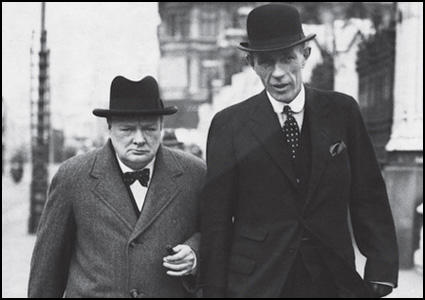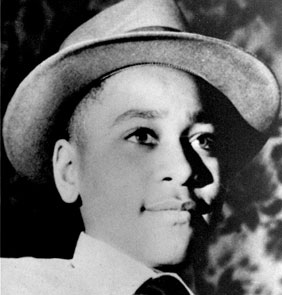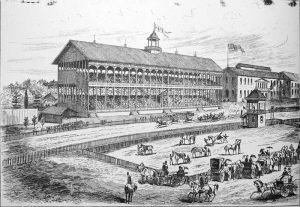Winston Churchill assumed the office of Prime Minister of the United Kingdom on 10 May 1940, just one day after Adolf Hitler marched his German forces into Denmark.1 What followed was a month of brutal bloodshed and agonizing uncertainty throughout the European continent. During this time, Churchill would find his nation on the brink of destruction, Hitler would see victory within his grasp, and a little known historical figure named Edward Wood, 1st Earl of Halifax would beseech his new Prime Minister to seek peace with the Nazi regime.2
Before Churchill took the job, Britain’s Prime Minister was a man named Neville Chamberlain. Chamberlain’s answer to the growing Nazi threat was the path of appeasement. He was not willing to throw his country into conflict so soon after World War I, and so he placated Hitler rather than openly opposing him. One of the most famous examples of this appeasement was the Munich Agreement. This pact, signed by France, Germany, Italy, and Great Britain in an effort to preserve peace on the European continent, effectively forgave Hitler for invading Czechoslovakia. Signed on 29 September 1938, the Munich Agreement stipulated that Hitler would not invade anymore countries; a promise he broke six months later. Blamed for the failure that was the appeasement strategy, Chamberlain was forced to step down from his position as Prime Minister. His successor was widely expected to be none other than his Foreign Secretary, Lord Halifax. Halifax declined the position. Though no one is exactly sure why, it is likely that Halifax felt that he was not suited to lead the country in time of war. 3 Therefore, the nation chose instead to turn to the man who had been the most vocal critic of appeasement: Winston Churchill. 4

Churchill had a daunting task before him as he took the office. Denmark had fallen, and all signs pointed to France following closely behind. One of his first acts as Prime Minister was to appoint a War Cabinet to advise him moving forward. As part of the Cabinet, Churchill appointed Neville Chamberlain as Lord President of the Council and asked Lord Halifax to keep his position as Foreign Secretary. 5 Churchill then sent the British Expeditionary Forces into France to help repel the Nazi invaders. Unfortunately, this move grossly underestimated German military capabilities, and British forces were in full retreat within a matter of weeks.
Since we know how the war ended, it is hard for us to fathom now just how dire Britain’s prospects were at the time. The Expeditionary Force was pinned on the Dunkirk Beach in France with seemingly no way of crossing the channel to get back to England. If the Germans managed to wipe out this force, which seemed imminent, Britain would have lost over 400,000 men and with them any hopes of ever stopping the Nazi conquest. In the face of utter annihilation, Churchill chose to stand firm. He ordered the commandeering of civilian boats to cross the channel and retrieve his soldiers, betting his country’s future on the long odds that these vessels could arrive before it was too late.6 Members of The War Cabinet did not share Churchill’s staunch optimism, most notable among them Lord Halifax.7 Halifax proposed a different tactic: a peace treaty with the Nazis. Halifax, being the skilled diplomat that he was, made contact Benito Mussolini, Prime Minister of Italy. Mussolini was willing to act as mediator so that Germany and the U.K. could sit down and negotiate terms for a peace agreement.8 From Halifax’s perspective this was the only way to ensure the survival of the troops trapped at Dunkirk, and the only way to save his beloved country. Though it seemed foolhardy at the time, Churchill refused to even consider peace negotiations.9 Luckily for him, and for our world, the civilian rescue mission succeeded, managing to bring most of the British troops home. Despite terrible odds, the United Kingdom lived to fight another day.

Assuming things had gone differently, and Churchill gave Halifax the go-ahead to broker a peace agreement, what might the treaty have looked like? The first thing to remember is, by all accounts, Britain was at the time posed to fall to German invasion. This meant that Halifax would have essentially been going to the negotiating table on his knees, making it unlikely that he could produce any favorable terms. Undoubtedly, Hitler would have used his advantageous bargaining position to get everything he wanted out of the deal. In exchange for safely getting the men out of Dunkirk, Nazis would have demanded that they be allowed to keep their conquered claims throughout Denmark, France, and other countries. Hitler also could have insisted that Britain not get further involved in the European conflict, allowing him to march towards Russia without worrying about the possibility of an active western front. Though it is impossible to measure whether 400,000 souls are worth such demands, it is important to keep in mind what precedent this would have set had the U.K. signed a peace treaty with Germany in Munich. Hitler took advantage of the Munich Agreement and disregarded it the moment he saw a tactical opportunity. Surely, no treaty Halifax could draft would have quelled the lust for power harbored by Hitler who stopped at nothing to establish a German world order. 10

All this we know thanks to well preserved historic records and the many biographies written since the war. We know that Churchill’s plan to resist at all costs did indeed pay off in the long run. But, looking at the events of the month of May 1940 through the eyes of the 1st Earl of Halifax, couldn’t one have concluded that the only hope for the United Kingdom was a final attempt at appeasement?
- Winston Churchill, The Gathering Storm (Boston: Houghton Mifflin Company, 1948). ↵
- Chris Hasting, “Lord Halifax tried to negotiate peace with the Nazis.” The Telegraph (August 30, 2008). ↵
- Andrew Roberts, The holy fox: a life of Lord Halifax (London: Papermac, 1992). ↵
- Ian Kershaw, Fateful choices: ten decisions that changed the world, 1940-1941 (London: Penguin Books, 2008). ↵
- Churchill, Winston. The Gathering Storm. (Boston: Houghton Mifflin Company, 1948), and Andrew Roberts, The holy fox: a life of Lord Halifax (London: Papermac, 1992). ↵
- Winston Churchill, The Gathering Storm (Boston: Houghton Mifflin Company, 1948). ↵
- Andrew Roberts, The holy fox: a life of Lord Halifax (London: Papermac, 1992). ↵
- Andrew Roberts, The holy fox: a life of Lord Halifax (London: Papermac, 1992). ↵
- Ian Kershaw, Fateful choices: ten decisions that changed the world, 1940-1941, (London: Penguin Books, 2008). ↵
- Arnold A Offner, “Appeasement Revisited: The United States, Great Britain, and Germany, 1933-1940.” The Journal of American History 64, no. 2 (1977): 373-93. ↵



90 comments
Christopher King
I like that the article is over something that has been overlooked for such a long time. The peace brokering between Nazi Germany and Great Britain could have changed how we see history and reshaped the world. Without a doubt it would have made the results of the war very differently. I like that the article built up to why there would be a peace talk and how it all came about. I noticed one or two grammar mistakes but aside from that it is a great article. This gives in detail the challenges that Winston Churchill faced when he took office from Chamberlain who laid back and let things happen.
Carlos Vazquez
World war two is one of the most researched topics in history. it is crazy to think that the outcome of an event of this magnitude could have been changed with a treaty. This article was really well written and informative, I really enjoyed reading it and learning more about the treaty that could have changed the outcome of the biggest conflict in history.
Ximena Mondragon
This article is great! It is well written. Additionally, this article made me think of the what if? . What if this treaty actually became a reality ? What would have changed of the events we know of now ? World War II is very interesting especially when learning about aspects of it that we usually don’t learn in history class. This article also reminds me of the show The Man in the High Castle which is about how the world would of been today if Hitler would of won World War II.
Erin Vento
This was a really interesting article! I feel like everyone remembers the details they hear about WWII from school, but there was so much going on behind the scenes that never gets acknowledged. Something like this could have really changed the outcome of the war and the course of history. The hypothetical outcomes you provided also added a lot to the story.
Timothy ODekirk
Politics in the 1940s was a major responsibility for any politician, especially for Winston Churchill. Churchill was smart during this time when it came to dealing with Hitler. I liked how in fear of his country, Churchill strategically did not openly oppose Hitler. I found that extremely interesting and an intelligent move from Winston Churchill. I cannot even begin to imagine the tremendous pressure that Churchill was facing as prime minister of Britain during this time. This was a fantastic story and an excellent article that details the events of [rime minister Churchill during World War 2.
Max Lerma
Great article, Matt! I had heard about this topic before but it always interesting to read about military history especially lesser known facts. Not many people know about what Churchill’s predecessor hoped to do. I can understand the logic behind his thinking, but I find it hard to fathom how someone could justify attempting to appease Hitler instead of trying to stop his agenda.
Johnanthony Hernandez
Interesting article, World War II has interested me since the day that I found my great-grandfathers journal from the war. Your article peeked my interest from the title alone. It makes me wonder what would have happened if England had signed the agreement. We can speculate what the outcome would have been but it is an outcome that we will never know.
Suvesh Vasal
This is an exceptionally well-written article that deserves to receive the credit it is truly due. The author used an immense amount of detail and the mix of good pictures makes this a contender for one of the best written on this website. Also, it is an interesting topic about a treaty that could have potentially ended the war. Great job Matthew.
Regina De La Parra
Great article! I love reading World War II articles because they are always filled with amazing resources and information that allows the reader to know more about this period in human history. Anyways, I think that a lot would have changed if the agreement with England had ever been signed. Although we can predict, I think we will never know. Great job Matthew!
Tyler Sleeter
On the second reading of this article, I noticed things that I had not the first time. It seems that Britain was extremely short of soldiers, fire power, and energy to fight the Germans. The Germans far out-manned the British forces and were more equipped to battle the British. It is sometimes interesting to play “what if” when it comes to events in history, and in the case of a possible treaty with Germany, this would have had bad results for Britain. I could not imagine how badly the arrangements of the treaty would have been if Halifax had gone through with his treaty.